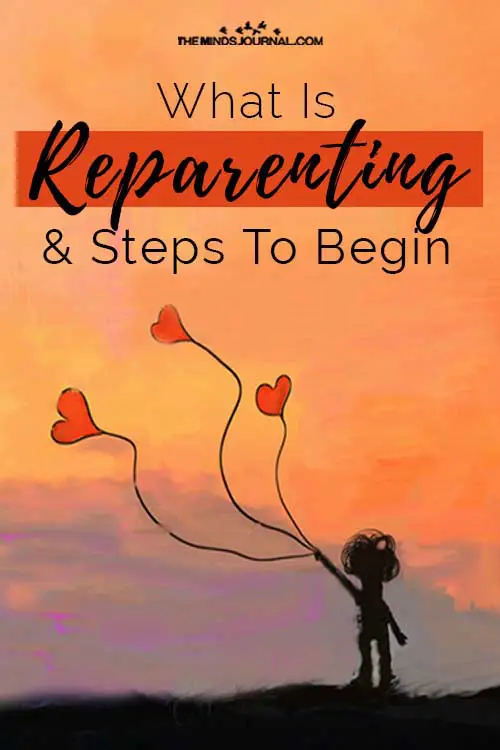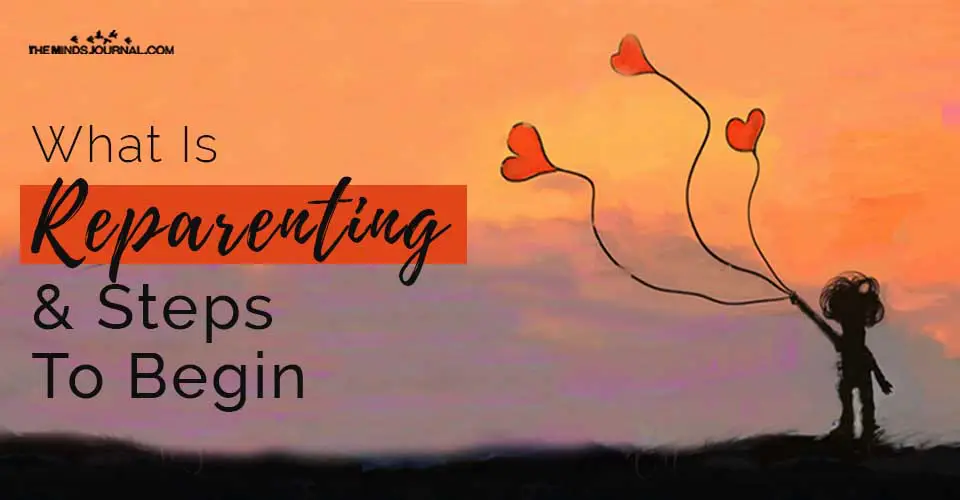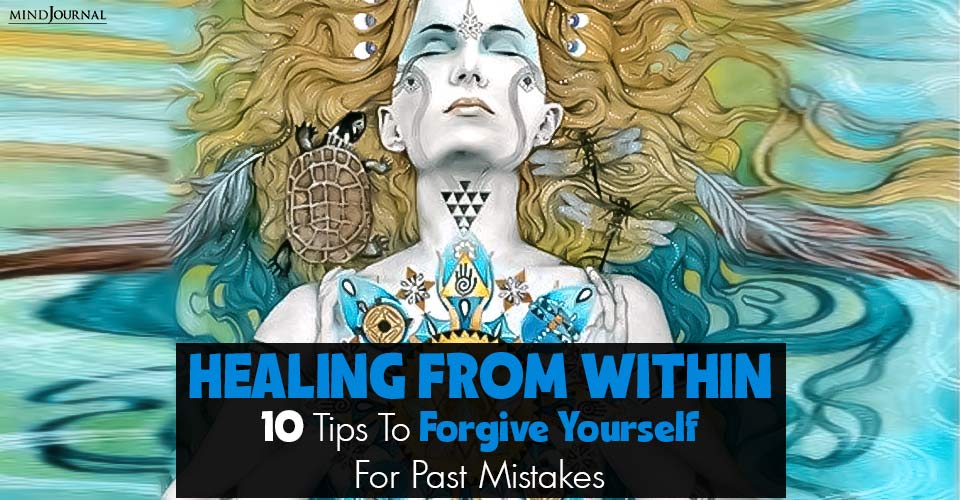Are you still struggling with your childhood wounds well into your adult life? Do you know that the practice of reparenting can hugely help in dealing with this?
Our childhood is where the subconscious mind is formed.
It’s also where we learn how we process emotions, what relationships look like, how to hold boundaries, and countless other habits and behaviors.
Ideally, our parents are two self-actualized people who allow their children to be seen and heard as the unique individual they are. The reality is that we live in a culture that does not reach conscious awareness, so most of us are born to
Unconscious parents are repeating the same habits and patterns they’ve learned. They’re operating from a wounded space because of their own unprocessed emotions.
It’s important to understand that parents can only parent from their own level of awareness.
We can only give others what we have practiced giving ourselves.
I’ve worked with all the different demographics of people. Over time I’ve come to understand that most people seek help for a relationship “communication problems”, destructive habits (addiction, self-sabotage), identity confusion (“Who AM I”), and generalized feelings of low-self worth.
Each of these issues manifests differently, but they’re all tied to one thing: conditioned behavior practiced since childhood.
Some of you reading this might be thinking “My childhood is over, there’s no reason to go back there.” Or “If my childhood is where I learned most of my coping mechanisms, I’m screwed.”
We tend to be protective and defensive around our childhood experience, but the truth is we have a unique opportunity to heal and consciously choose different behavior as adults. Regardless of what we have experienced in our past.
This process is called reparenting.
Reparenting is the act of giving yourself what you didn’t receive as a child.
My childhood was unique in that I had two (physically) present parents who were emotionally absent. My mom was a stay-at-home mom and my dad was home every day by 5:30 for dinner. My parents were in their mid 40’s when they had me, and there was 18 years between my brother and myself.
By the time I came around, they were highly distracted. My mom was battling severe chronic pain, and my sister (who had her own health challenges) had gone through a series of surgeries throughout her childhood and teen years. Death and illness were a constant focus.
I had zero discipline. I decided from a very young age what time I would go to bed, what I would eat, and what time I would come home. My mom spent the majority of the time in her bed. Her sickness was a focus for everyone in the home.
There was a lot of chaos and co-dependence.
This is where my anxiety began. It manifested as disordered eating and obsessive-compulsive “achievement” behavior.
Of course, this wasn’t seen as a negative. I excelled in both athletics and academics. I won awards. I was offered scholarships. I adapted and channeled my anxiety. A lot of people don’t understand that underneath achievement behaviors is a lot of pain and unhealthy conditioning.
In my 30’s when I was no longer in school or playing sports, I got a clearer picture of more negative manifestations.
I didn’t show up for myself, my spending was out of control, I did not understand how to set (or keep boundaries), and overall had placed no focus on my physical and spiritual health.
Discovering reparenting was a game-changer for me.
It was not my parents “fault.” It meant nothing about who they were as people. Or how much they loved me. They were doing the best they could with their level of awareness.
Now, it was time for me to do the best I could with my own evolved level of awareness.
Reparenting is our personal responsibility. Anyone can begin the process of reparenting themselves. It takes time, commitment, and patience. There is no quick fix. It will require you to show up every day. But it will allow you to heal and forgive.
The 4 Pillars of reparenting are:
Discipline, Joy, Emotional Regulation, and Self-care.
I go more in-depth on these in a video you can watch here: [LINK]
Depending on your unique childhood experience, some of these will be more difficult than others. For me, discipline was the most difficult part. My mind had a tantrum. My childhood-self rebelled. There was no part of me that wanted to wake up early, go to the gym, or really do anything “planned.” It was a process of grieving for my past self as well as self-compassion to allow me to view discipline in another way.
Another major struggle for me was finding joy. Joy is an emotional experience. It’s the product of spontaneity, play, creativity, and pure presence. It’s not something that I experienced within the home.
Part of discovering joy in learning your own unique passions and interests. This is something I had to spend time connecting to. I had to relearn “me.”
Years into the reparenting process I can say that I am truly a different person.
It’s brought me so much more confidence, empathy, and creative energy.
Want to know more about reparenting? Read 8 Ways Reparenting Yourself Can Help Heal Your Inner Child
Here are 5 Steps to Begin:
1. Breathe:
Yes, this is a step. It’s easy to become overwhelmed. Reparenting is a process. It’s not something that happens overnight. It’s not something that happens over a couple of months. If you try to do too much of this work at once, you’ll become overwhelmed and fall back into old patterns. Follow the steps, do not try to do too much at once.
2. Keep one small promise to yourself every day:
This step should be so small that it’s seemingly insignificant. You need to choose something that sets you into a situation where you’ll succeed. For example, my first promise to myself was to wake up early. I knew with my schedule I could do this every single day. If you have a schedule that doesn’t allow for this, this is not a good choice for you.
If you don’t go to the gym every day now, do not promise you’ll go to the gym every day. Some good examples are: meditate for 2 minutes, go for a 5-minute walk around the block each morning, cook one meal at home every day, future self journal each night before bed. Time is important here: do not choose any promise that takes more than 10 minutes in total.
3. Tell someone you trust (other than your parents) that you’re beginning the process:
Do not share that you’re doing this with your parents. It’s not necessary and can be hurtful to them. Remember, they did the best they could with their level of awareness and will likely become defensive if you talk about this.
Reparenting is for you. When I began the process, I shared it with my partner and we worked to do this together. If you have a partner or a close friend, let them know you’re working on this. Support will be helpful.
4. Use this Mantra:
“What can I give myself right now?” This is a mantra I use often. As children, we weren’t always given what we needed. As adults, we have an opportunity to give what we need to ourselves. When you feel yourself having strong emotions, ask this question.
Sometimes the answer for me is a bubble bath. Other times it’s to disconnect with social media, or a need to get into the sun for 15 minutes. It’s ok if when you begin asking this question you feel confused or like there is no answer. Just continue asking. It’s a practice of connecting with intuition. If you stay committed, you’ll begin to get answers.
Looking to know more about how reparenting can help you in your adult life? Read How to Heal Your Inner Child That Is Blocking You For Love
5. Celebrate when you show up:
If we were not recognized, celebrated, and seen for the unique individual we are, we will quickly disregard the reality that we are showing up.
Reparenting is difficult. Its soul work. Acknowledge the courage it takes. Own your progress. Celebrate the person you’re becoming.
Written by Nicole LePera
Originally Appeared In The Holistic Psychologist
Reparenting yourself might seem like a formidable task, but it is one of the best things you can do to make sure that you have a healthy and happy adult life. If you do not heal your childhood wounds, how would you make progress as an adult?
If you want to know more about reparenting, then check this video out below:









Leave a Reply
You must be logged in to post a comment.